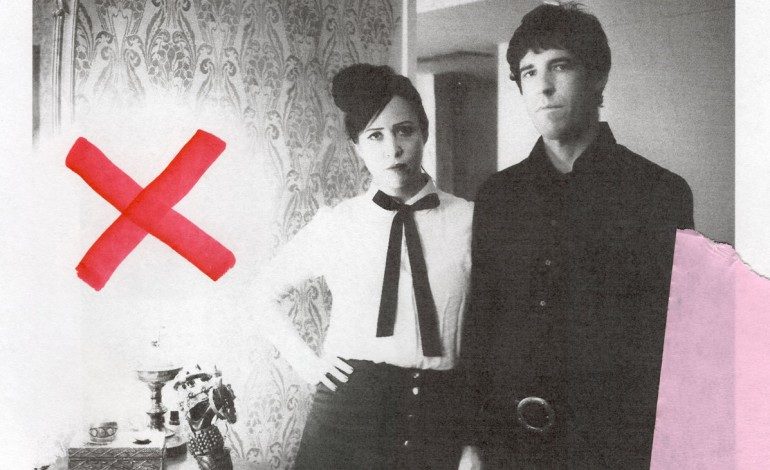

Dion Lunadon Finds Identity Amid Midlife Crisis
Rage. Boredom. Discontent. Regrets. These are emotions any middle-aged adults would feel. At 41 years old, the New Zealand rocker, Dion Lunadon, is certainly feeling them. Expressed in their rawest, most primitive forms, these emotions weave a narrative of midlife soul-searching in the punk rocker’s self-titled solo debut. Having played under the shadows of other bands’ enterprises for years, Lunadon now comes out to exert his own creative force — hence the significance of this solo undertaking. This creation would be something entirely his own and no one else’s. Lunadon established his music career while playing for The D4, a garage rock band from his hometown. He later became the bassist for the Brooklyn-based noise rock band, A Place to Bury Strangers. While his career flourished under these associations, the dictates of cooperative efforts always took precedence. Now, this solo album offers him the chance to freely utilize his own imagination without the burden of having to respond to other authoritative voices. In Dion Lunadon, he explores these emotions that have been buried within him and unapologetically springs them out in their purest, unadulterated forms.
Variety is commonly a trait most artists, listeners and critics praise and value; yet this attribute cannot be found in Dion Lunadon’s album. Having played for both garage rock and noise punk bands, it should be expected, of course, that each song would reflect that style. Lunadon makes sure that each song exhibits the loud, fuzzy, distorted and percussive sounds that characterize his variants of punk rock. The problem is his persistent steadfastness. The tracks sound all too alike, becoming impossible to differentiate one from the other. A listener should be able to name a song upon listening to it, but for the tracks of Dion Lunadon, that task becomes an ordeal. That is not to say Lunadon’s musical talents dwindle as a result, but that perhaps he finds it most comfortable to convey his messages through that style; and he has a lot to say.
At the age of 41, Lunadon has come a long way and established his place in the music industry. He has collaborated with many talented artists and was part of several great music ventures. Yet, for many musicians in the industry, including Lunadon, there comes a dissatisfaction with having to renounce one’s own creativity for the sake of satisfying group consensus or yielding to the diktats of music executives whose priorities lie with album sales rather than innovation. This solo album offers the release Lunadon has long been searching. Speaking to Fused Magazine, he explained what the project meant to him, “It allowed me to do something with no compromises and something that reflects who I am and how I was feeling at the time.” Finally, a chance to present his undiluted self to the world, for the world to see his creative force in its entirety. Lunadon explained he did not want to conform to any set precedents as he wanted to produce something entirely his and no one else’s before him, “It kinda feels like a lonely one-man scene.” Being on one’s own and not dependent on anyone else is liberating, and Lunadon explores the feelings of drudgery that had previously oppressed him in his album. In “Reduction Agent,” he sings out the fear that occupies the mind of every middle-aged individual, “The mark of death won’t leave me alone.” Death feels closer and nearer when we realize that we have lived half our lives but have yet to reach our potential. Yet, perhaps we need to hit some kind of rock-bottom to rip ourselves apart from the midlife comforts that were subduing us to a life of mediocrity and compromises. Steady gigs and security allow Lunadon to live life “Hanging by a Thread.” But that is not a life he sees himself continuing living. The song ends with “hanging by…” and comes to a sudden halt. It seems as if Lunadon has decided to let go of the thread and finally live the life he seeks. One realizes the life he wants only upon meeting death face-to-face. By letting go, he hits rock bottom, which provides the outburst he needs to release him from a life of oppression. To some, it may seem strange to give up comforts and security and, in “Com/Broke,” Lunadon concurs, “I got no reason to run.” But sometimes a man just has to do what he feels right even if that seems crazy to others. Something as crazy as “buying a home outside the city / set it on fire / watch it burn without pity.” The fire offers the catharsis he needs. And finally he can feel raw emotions coursing through him. In “Fire,” he is having feelings so fervent and uninhibited that he “can’t even sleep with hate running through [his] head.” Lunadon is discarding everything he has ever known: “Sound like the truth but you know it’s a lie.” Material comforts are not our salvation, but, rather, we are our own martyrs.
“I cannot howl but I want to,” Lunadon cries out in “Howl.” All along, Lunadon just wanted to howl, to release the forces that have been tying him down. He said to Fused Magazine about his past collaborations, “I wish our recordings were rawer. I wish I’d had more belief in myself in some respects, and maybe taken control of things a bit more…” What he wanted was “something that makes you want to smash shit up or have at least some intense emotion.” And, in Dion Lunadon, he did.
